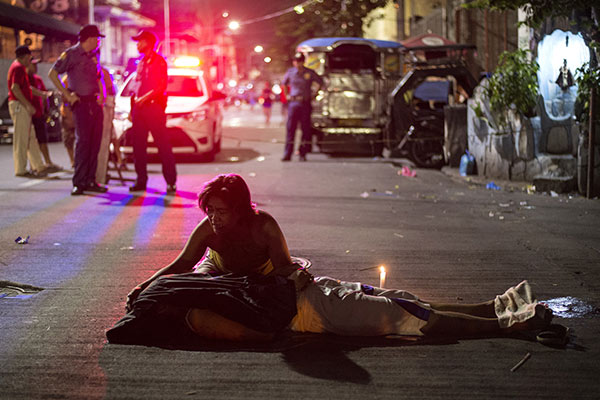SC decision on PEA-Amari deal to cost gov’t P9.4 billion
August 16, 2002 | 12:00am
The government stands to repay about P9.4 billion in expenses incurred by property consortium Cyber Bay Corp. in the suspended Manila-Cavite Coastal Road reclamation and development project, a company official said.
Cyber Bay corporate secretary Ray Espinosa said this is in the event the Supreme Court denies their pending motion for reconsideration over a July 9, 2002 ruling that nullifies the amended joint venture agreement (AJVA) between the Public Estates Authority (PEA) and Central Bay Development Corp., a wholly-owned subisidary of Cyber Bay.
"The AJVA provides that in the event Central Bay is prevented from completing the project, PEA shall, within one year from receipt of a written notice of the breakdown of all expenses so incurred by Central Bay for the project, reimburse these expenses, plus legal interest computed from the date PEA receives the aforementioned notice," Espinosa told the Philippine Stock Exchange.
Last July 9, the SC permanently stopped the implementation of the 1995 agreement citing as grounds that the project – involving around 750 hectares of land – was not awarded through a public bidding and involved the sale of submerged lands. Moreover, the High Court said reclaimed land, being part of the public domain, cannot be owned by private corporations.
Cyber Bay is a consortium made up of Filipino investors led by San Miguel vice chairman and president Ramon Ang and major foreign stockholders led by Italian Thai Development Co. Ltd. and Amari Holdings Inc., which combine for around 21 percent of the company’s equity.
The publicly-listed firm absorbed Central Bay Development Corp. as its wholly-owned subsidiary after the latter signed the AJVA, when it was then the foreign-controlled Amari Coastal Bay Development Corp.
Under the AJVA, the government will take in a 30-percent share as part of the revenue sharing scheme once the project – conceived as a modern, integrated township in Southern Metro Manila – takes off toward full commercial operations.
Aside from the company, the PEA and the Office of the Solicitor General have separately filed their own motions for reconsideration with the SC.
"Based on the advice of its legal counsel, the company believes that the decision of the Supreme Court in nullifying the AJVA was erroneous and not in accord with the relevant laws and jurisprudence," Espinosa said.
He added that since Central Bay and its project is the only asset of the Cyber Bay, the validity of the AJVA and the reversal of the SC decision are of crucial importance to the viability and survival of the company.
Espinosa pointed out that if the SC rules otherwise, the company including all of its foreign and Filipino shareholders and its bank and other creditors, "will suffer tremendous and irreparable losses, and this will likely lead to the bankcruptcy and eventual liquidation of the company."
Cyber Bay corporate secretary Ray Espinosa said this is in the event the Supreme Court denies their pending motion for reconsideration over a July 9, 2002 ruling that nullifies the amended joint venture agreement (AJVA) between the Public Estates Authority (PEA) and Central Bay Development Corp., a wholly-owned subisidary of Cyber Bay.
"The AJVA provides that in the event Central Bay is prevented from completing the project, PEA shall, within one year from receipt of a written notice of the breakdown of all expenses so incurred by Central Bay for the project, reimburse these expenses, plus legal interest computed from the date PEA receives the aforementioned notice," Espinosa told the Philippine Stock Exchange.
Last July 9, the SC permanently stopped the implementation of the 1995 agreement citing as grounds that the project – involving around 750 hectares of land – was not awarded through a public bidding and involved the sale of submerged lands. Moreover, the High Court said reclaimed land, being part of the public domain, cannot be owned by private corporations.
Cyber Bay is a consortium made up of Filipino investors led by San Miguel vice chairman and president Ramon Ang and major foreign stockholders led by Italian Thai Development Co. Ltd. and Amari Holdings Inc., which combine for around 21 percent of the company’s equity.
The publicly-listed firm absorbed Central Bay Development Corp. as its wholly-owned subsidiary after the latter signed the AJVA, when it was then the foreign-controlled Amari Coastal Bay Development Corp.
Under the AJVA, the government will take in a 30-percent share as part of the revenue sharing scheme once the project – conceived as a modern, integrated township in Southern Metro Manila – takes off toward full commercial operations.
Aside from the company, the PEA and the Office of the Solicitor General have separately filed their own motions for reconsideration with the SC.
"Based on the advice of its legal counsel, the company believes that the decision of the Supreme Court in nullifying the AJVA was erroneous and not in accord with the relevant laws and jurisprudence," Espinosa said.
He added that since Central Bay and its project is the only asset of the Cyber Bay, the validity of the AJVA and the reversal of the SC decision are of crucial importance to the viability and survival of the company.
Espinosa pointed out that if the SC rules otherwise, the company including all of its foreign and Filipino shareholders and its bank and other creditors, "will suffer tremendous and irreparable losses, and this will likely lead to the bankcruptcy and eventual liquidation of the company."
BrandSpace Articles
<
>
- Latest
- Trending
Trending
Latest



























